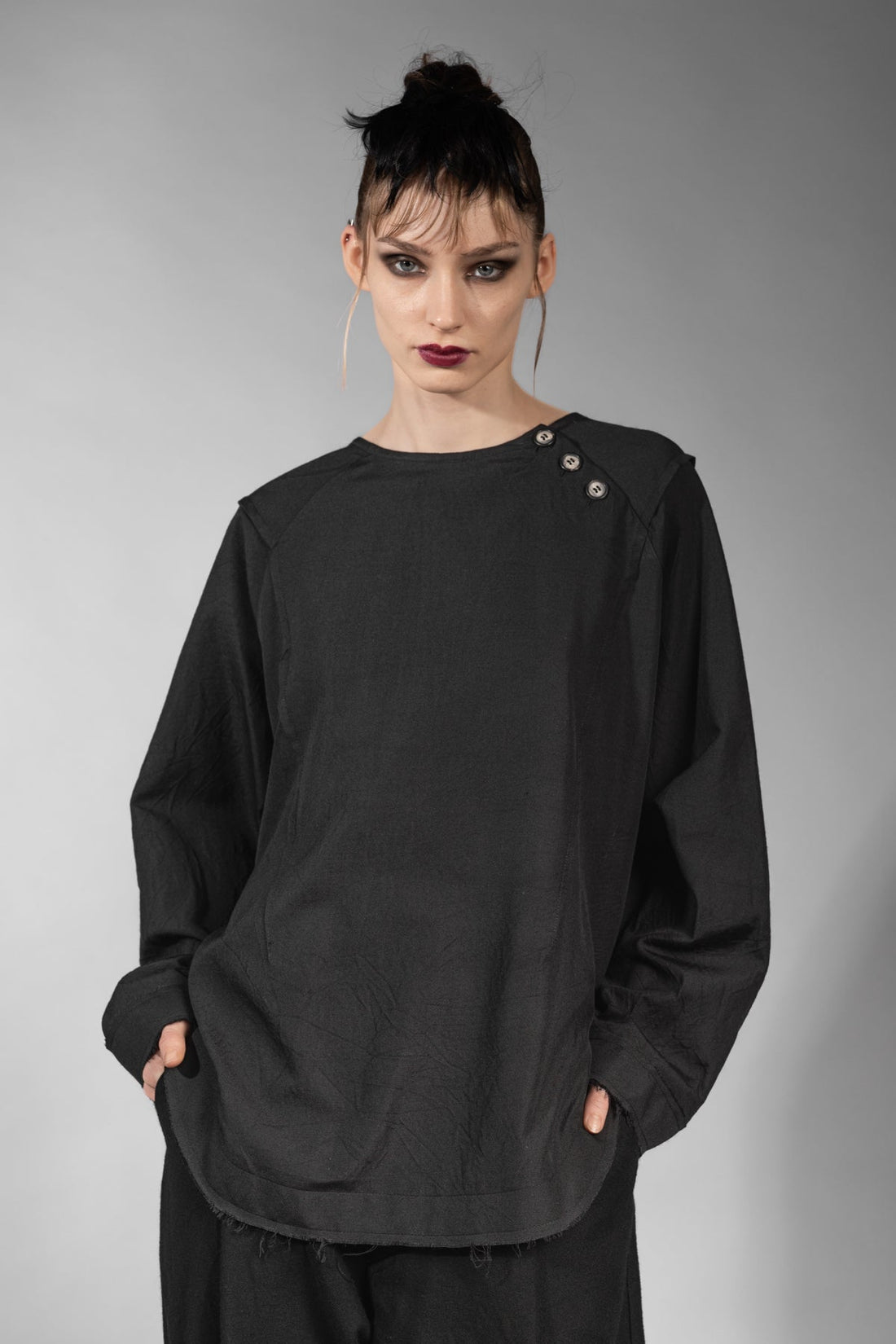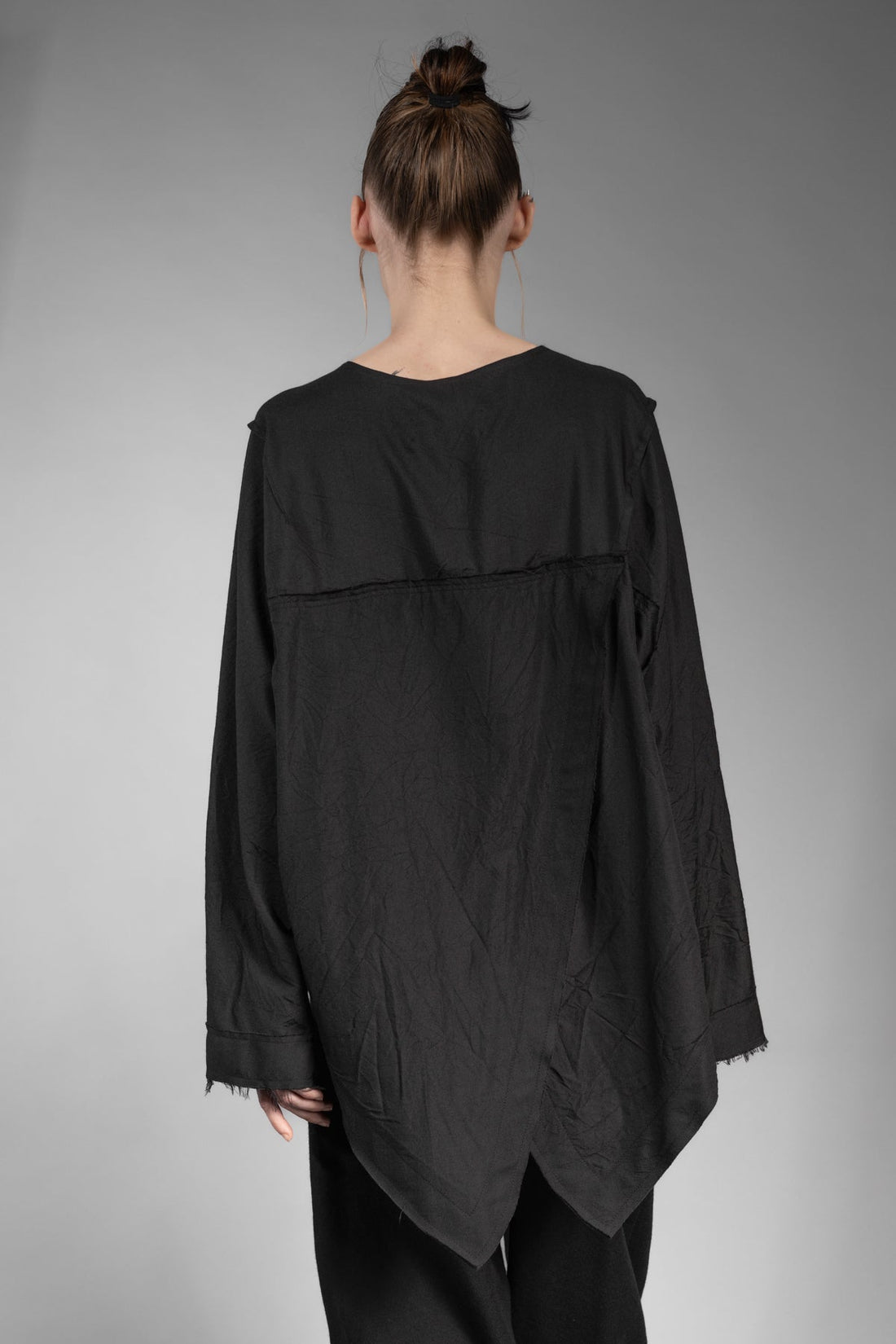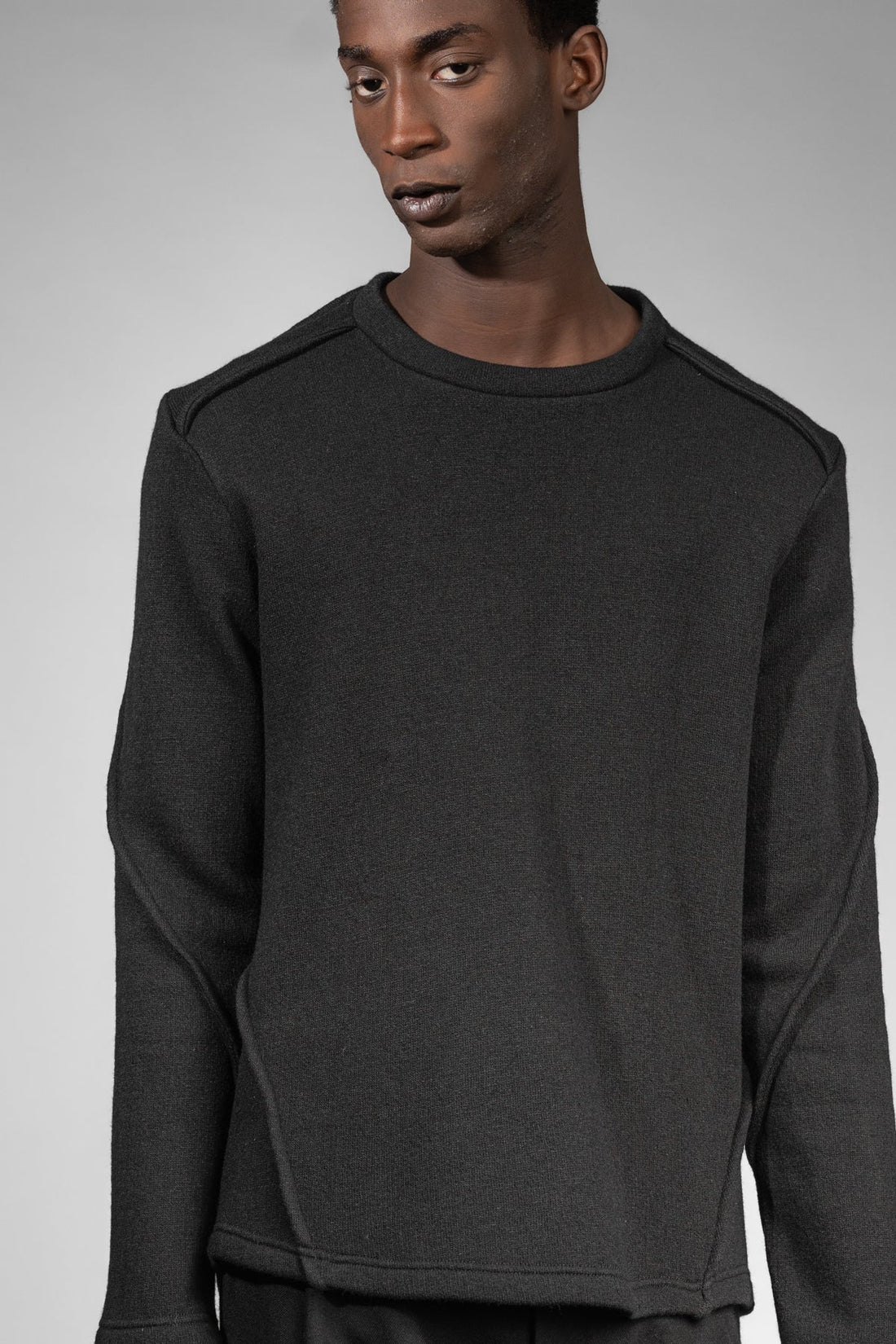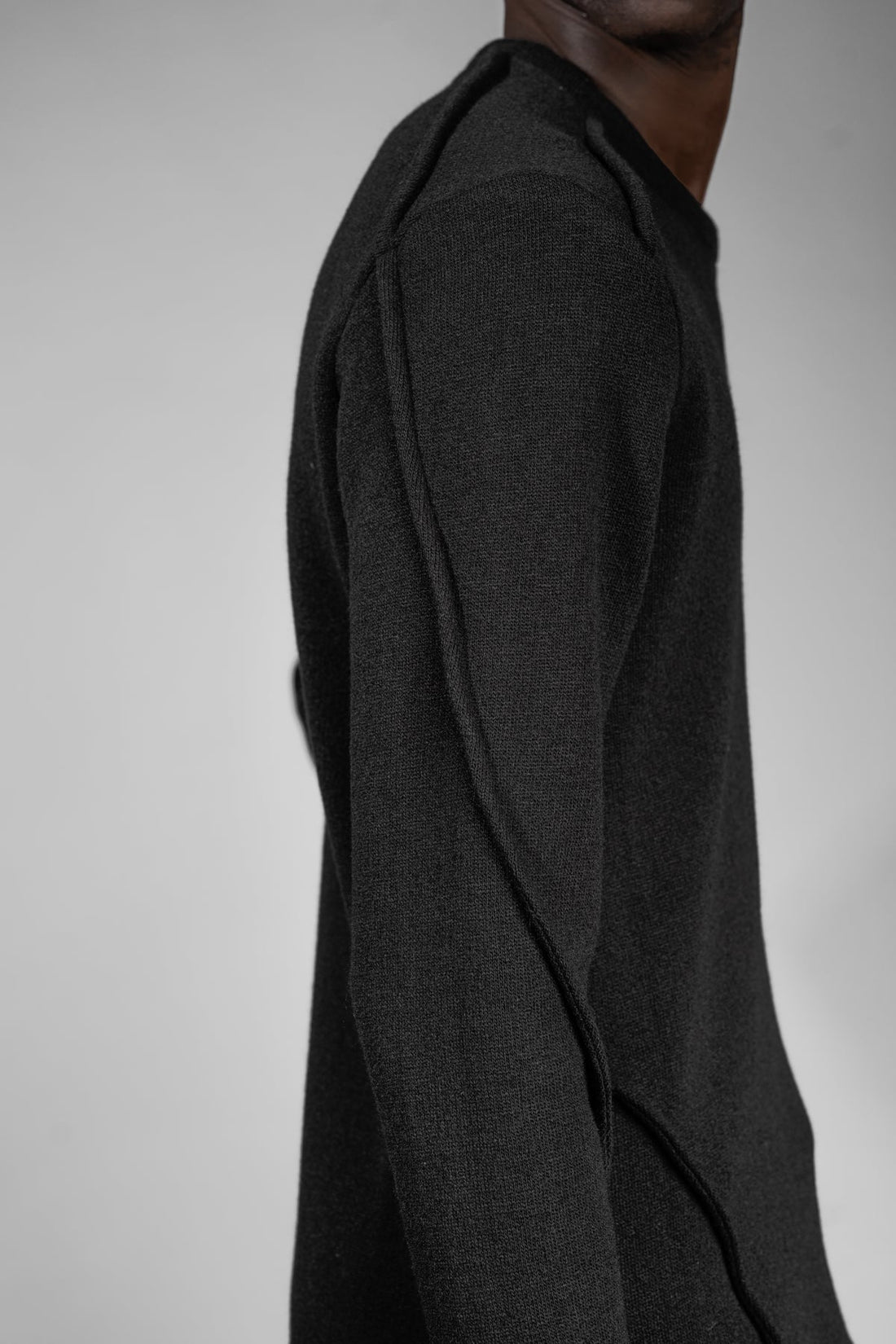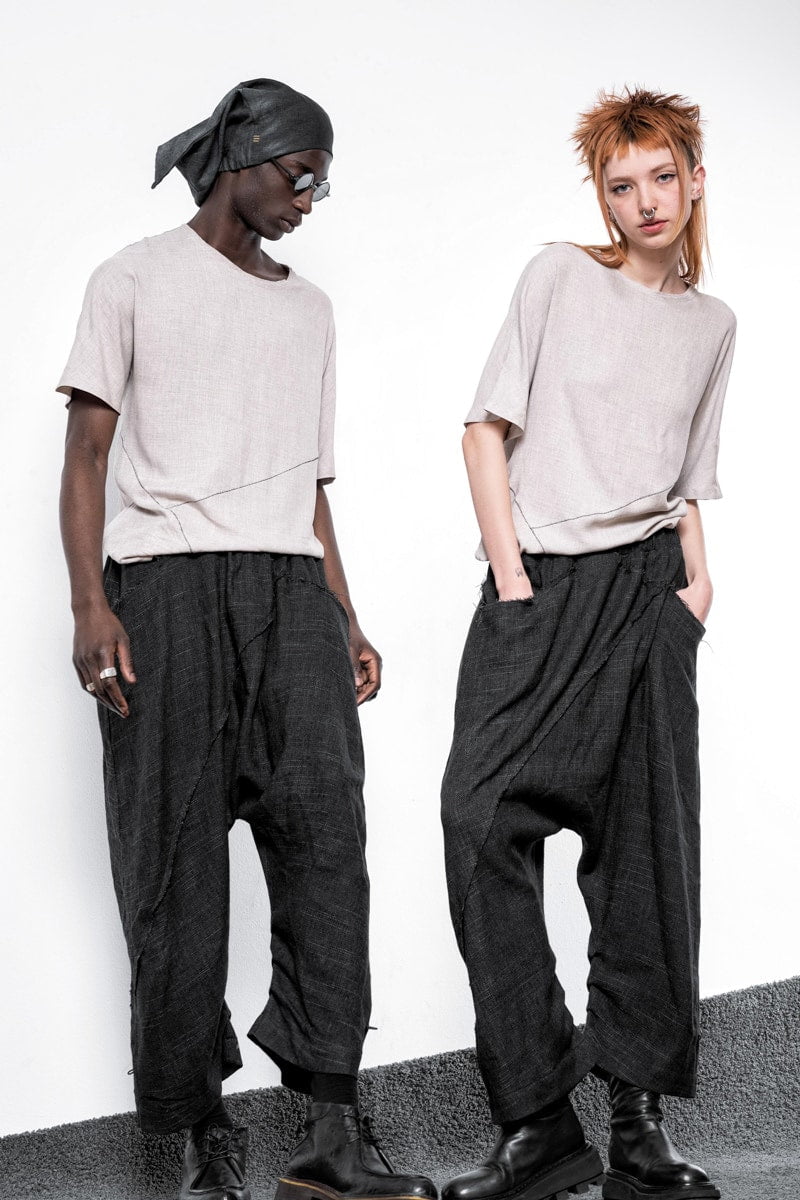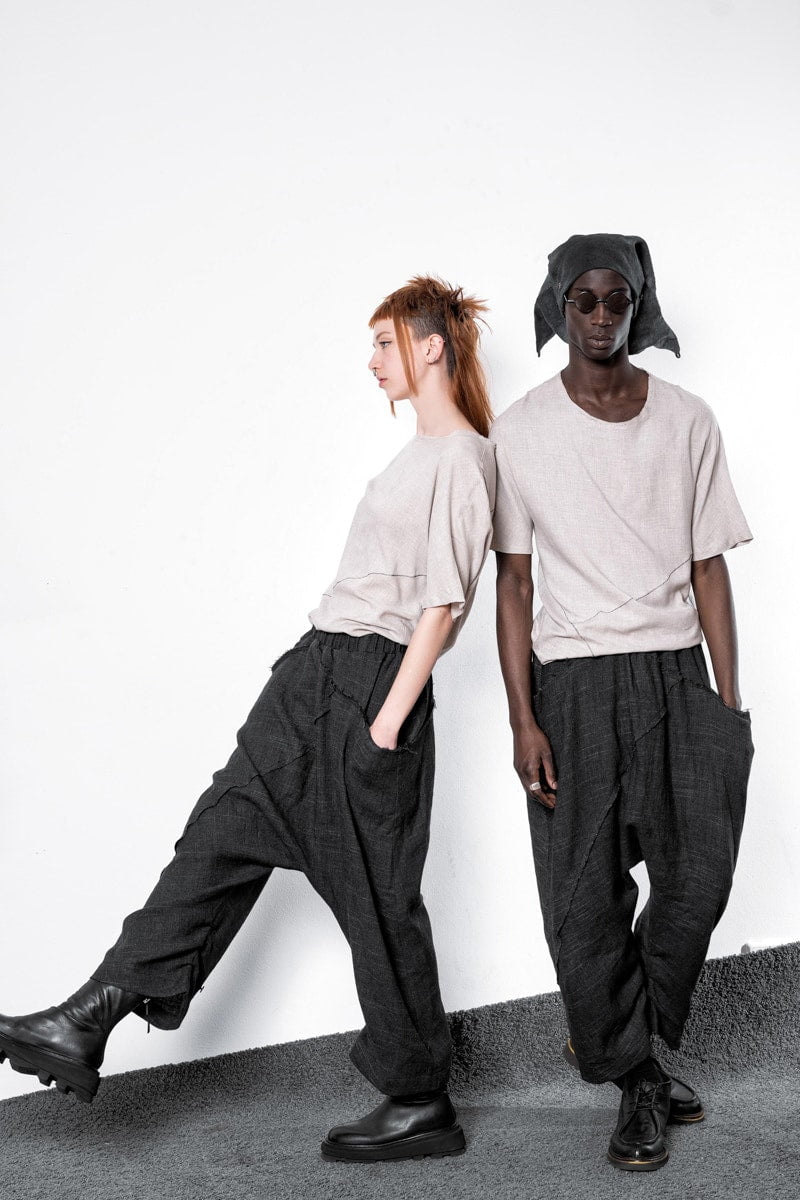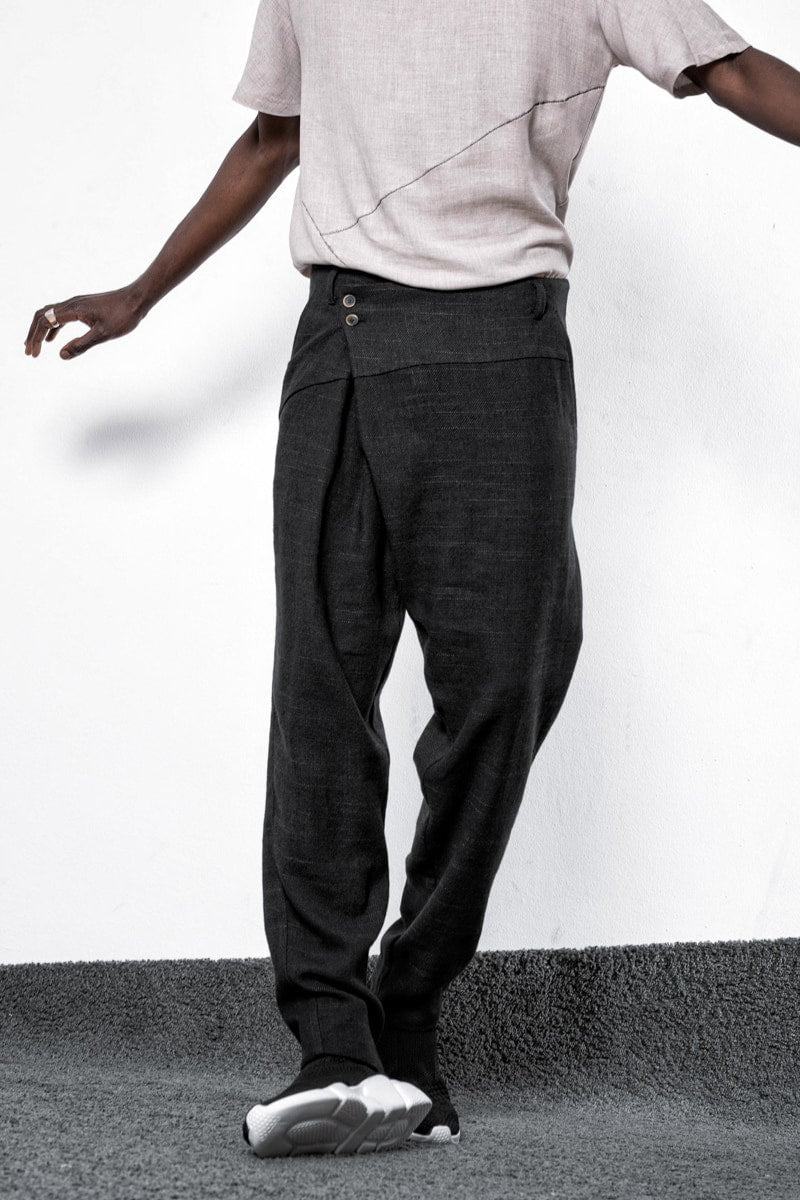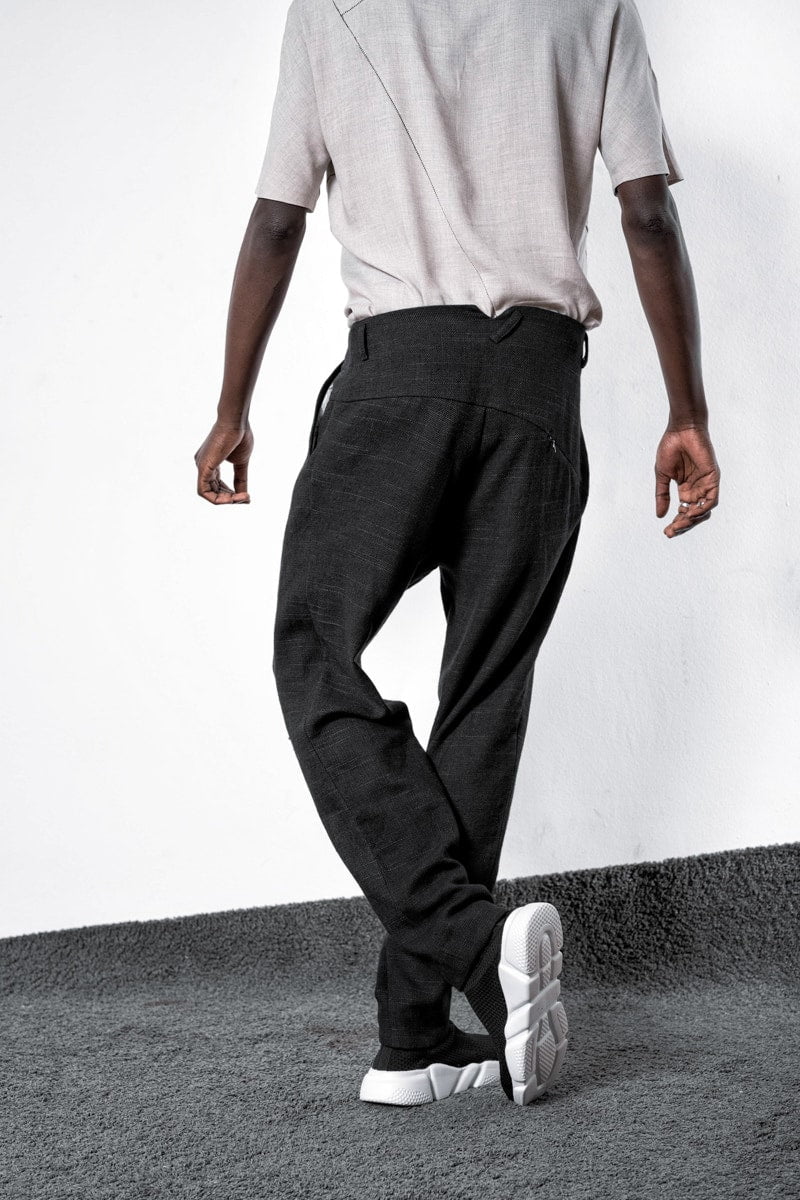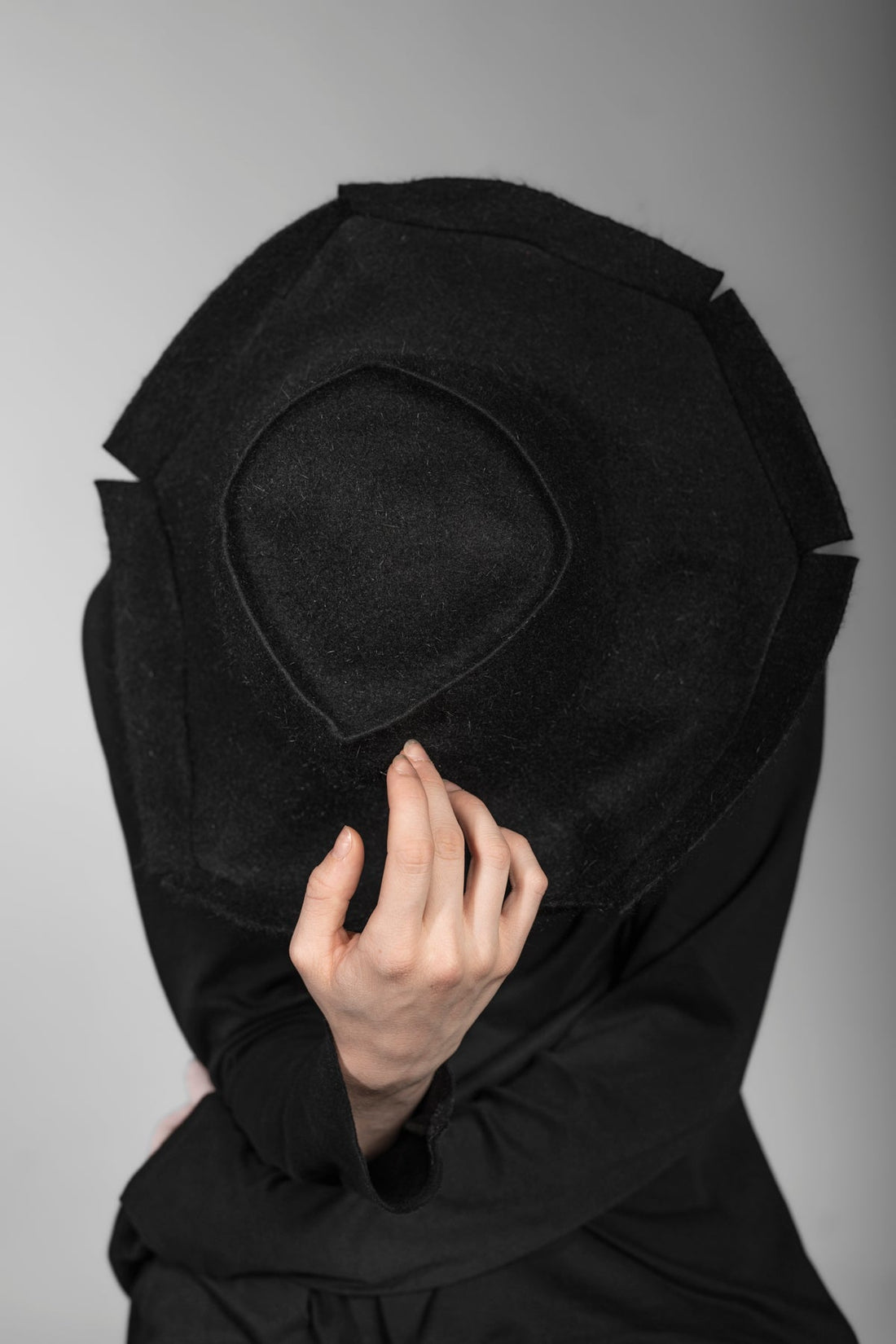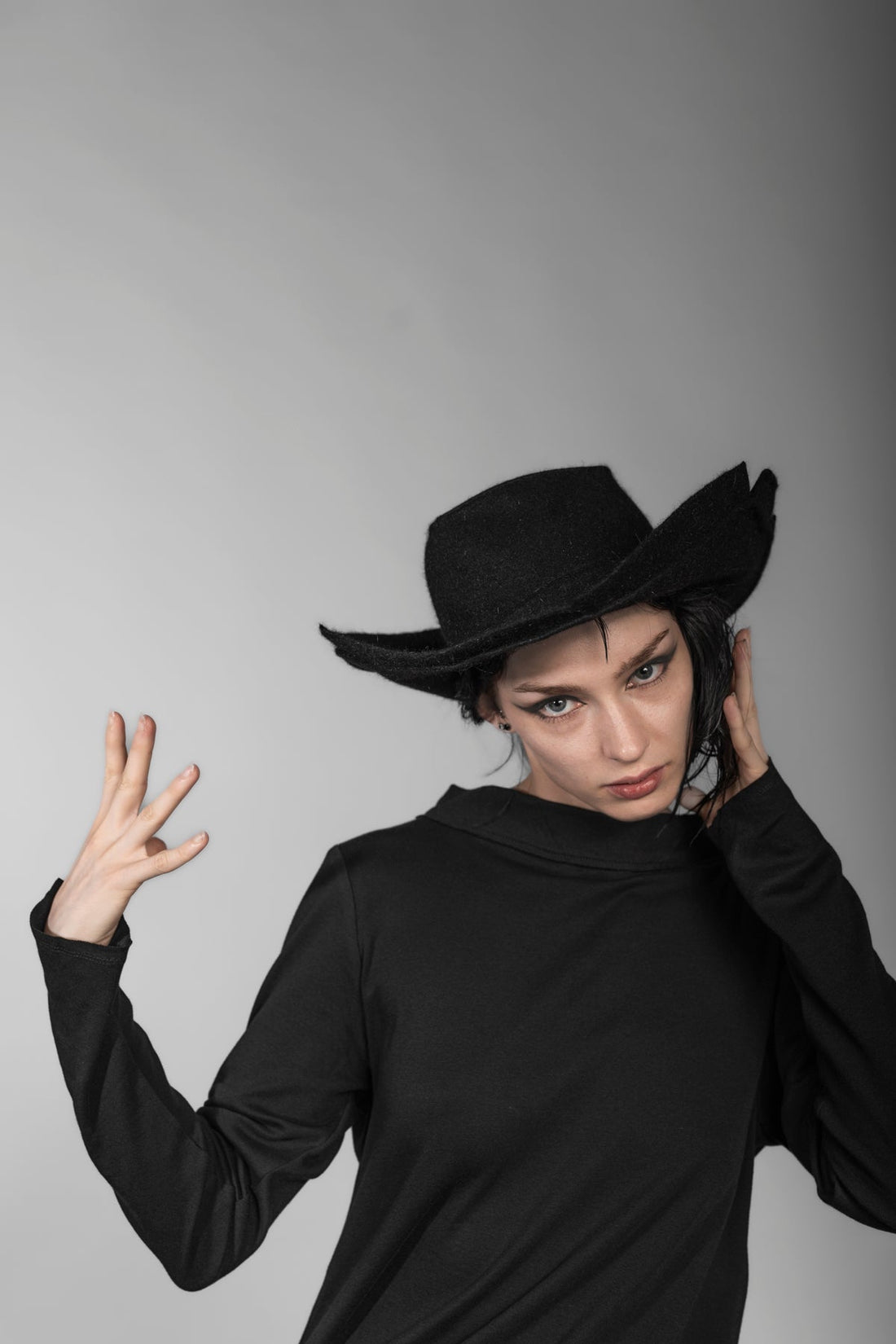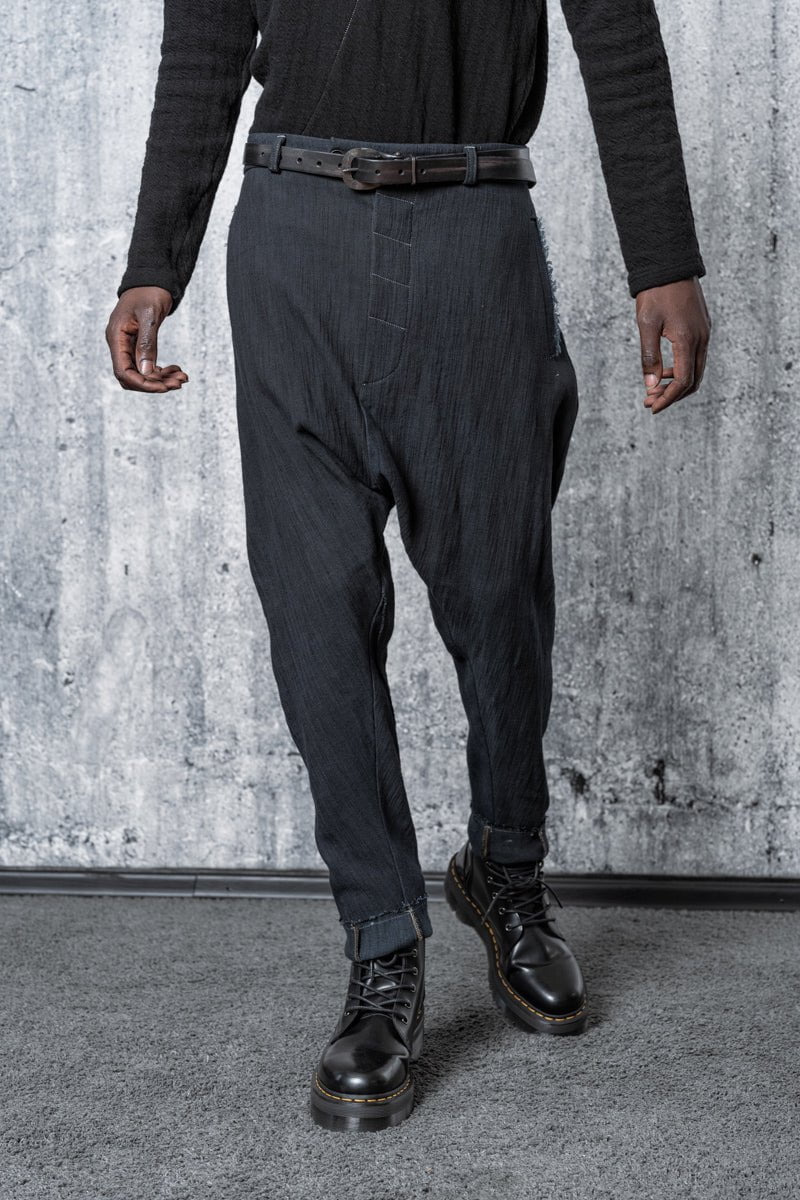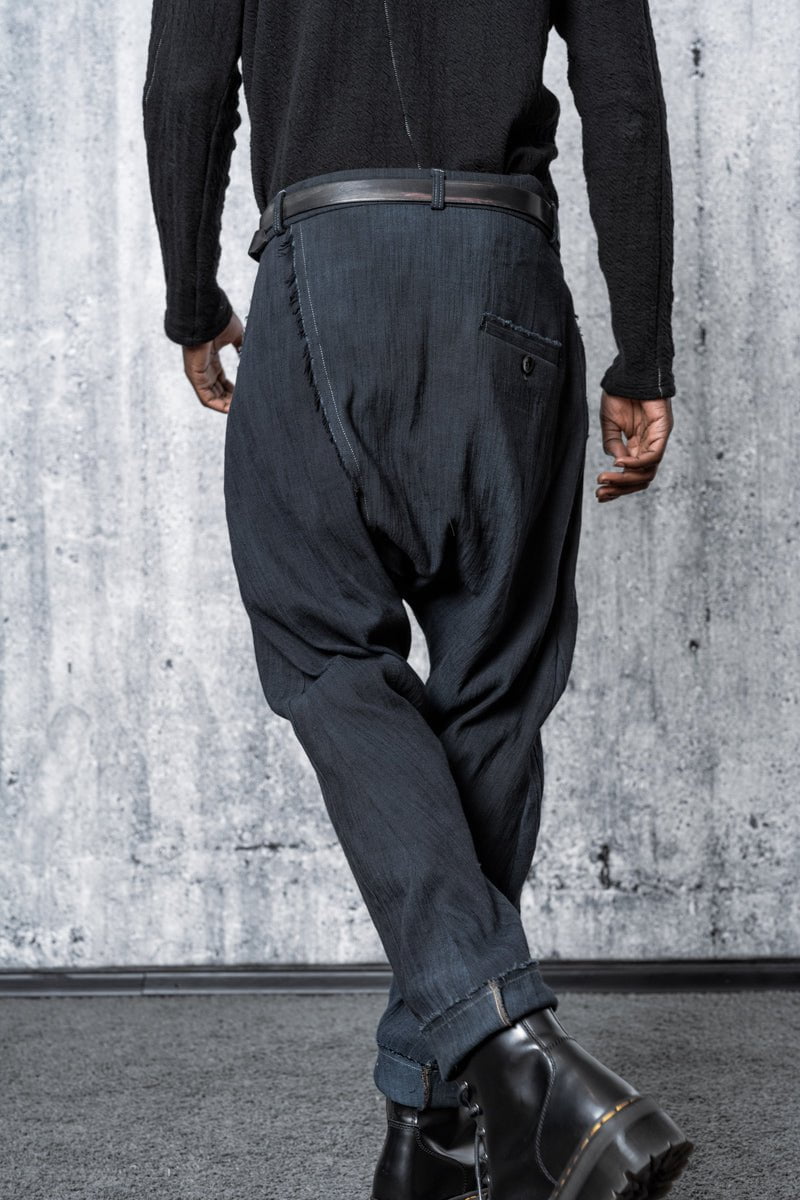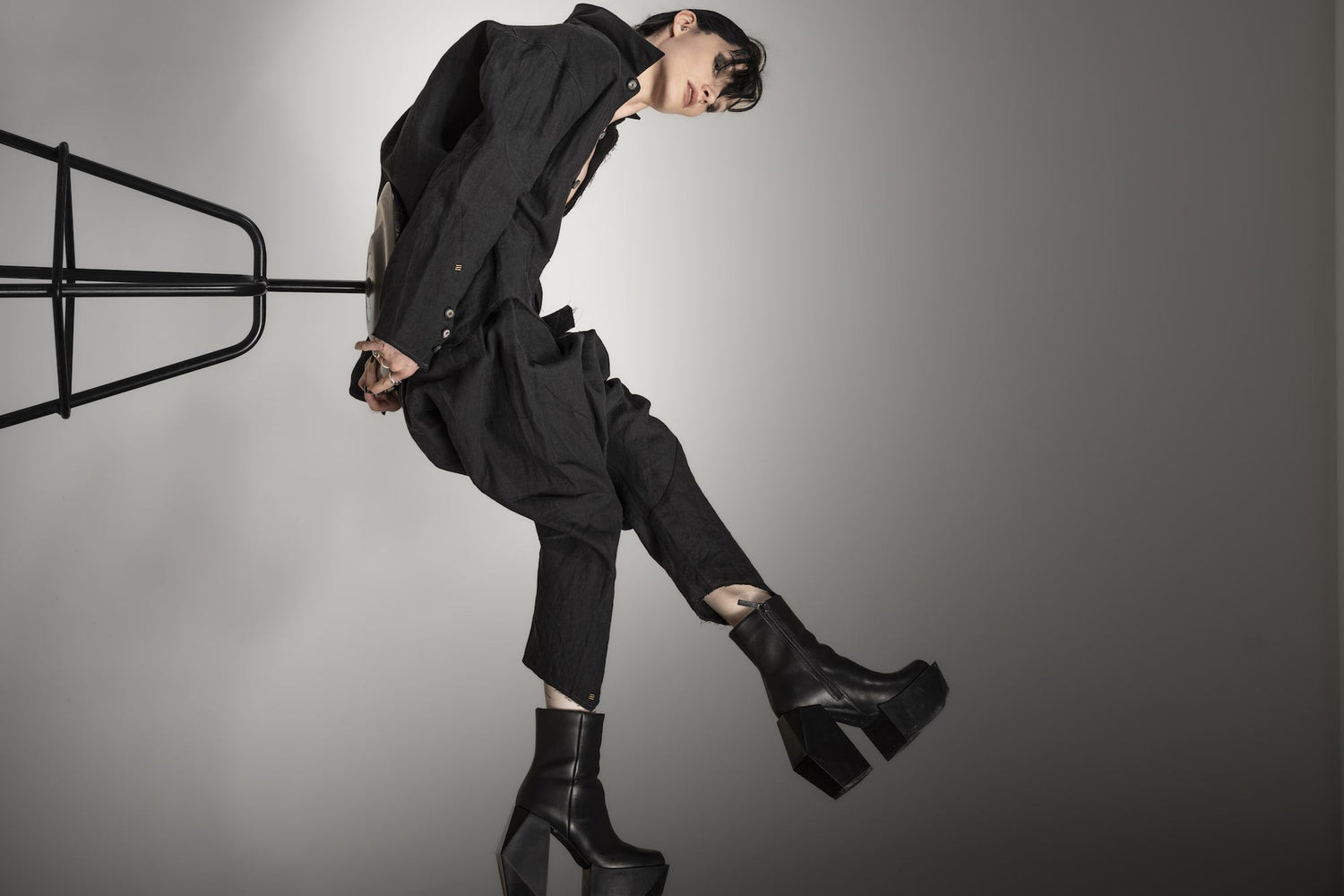Gournay Special and wide pullover made of wool in black / white
- XS - Made-to-order
- S - Made-to-order
- M - Made-to-order
- L - Made-to-order
Fitting and size guide
Do you have any questions about fitting or the right size for you? Please feel free to contact us.
Tuesday - Friday: 1 PM - 7 PM
Saturday: 11 AM - 6 PM
| Size | XS | S | M |
|---|---|---|---|
| Chest circumference in cm | 124 | 128 | 132 |
| Hip circumference in cm | 121 | 125 | 129 |
| Back length in cm | 79 | 79,5 | 80 |
| Sleeve length in cm | 71,5 | 72 | 73 |
Please check the measurements in the size chart .
Couldn't load pickup availability
Delivery
Usually 1-3 working days
Delivery
Every order we receive on work days before 3 p.m. CET is shipped the same day via Austrian Post or UPS.
Delivery times may vary depending on the region. After dispatch, you will receive an automatic email with the tracking number for tracking the shipment.
Austria: 1-2 working days
EU: 1-3 working days
Switzerland: 1-3 working days
Europe: 2-5 working days
North America: 2-7 business days
Asia & Australia: 2-10 business days
Contact & FAQ
Contact us or find answers to frequently asked questions.
Contact & FAQ
Do you have any questions about our sizes? Are you unsure about the right size? Do you have any questions about possible adjustments (sleeves, leg length, etc.)? - Contact us and our team is happy assist. Real humans.
Tuesday - Friday: 1 PM - 7 PM
Saturday: 11 AM - 6 PM
Frequently Asked Questions
pay
Delivery
Prices and delivery for customers outside the EU
Tailor shop
Would you like a different color or material?
Tailor shop - Our services for your individual wishes
Are you interested in this product? But would you like a different fabric? A different color? Any other details?
In our tailor shop we make it according to your individual wishes. Visit us or contact us.
 Fabric & care
Fabric & care
Product informations
Wide, asymmetrical women's wool pullover in wabi-sabi aesthetic in black and white for fall and winter.
Marie de Gournay was a remarkable personality: the writer, philosopher and women's rights activist lived in 16th century Paris and is considered one of the most educated women of her time. Self-taught, she acquired the knowledge she needed for her translations and writings. Because she vehemently advocated women's right to education and property in the context of the witch burnings, she is considered the mother of modern feminism.
We have dedicated the oversize women's pullover made of a wool-cotton blend, which has an organic effect, to this original feminist. It is pleasantly warming, hugs the body and at the same time gives enough free space. Obstinate are the central and side cuts on the front and back; also the asymmetrical sleeves and the three ocher stripes are unconventional details. The special color scheme and its texture give the pullover a wabi-sabi aesthetic. An individualistic creation for freedom lovers.
Combined with the black wool trousers 'Didion' or 'Feyerabend', 'Gournay' becomes an obstinate, casual ensemble for leisure and work. For special occasions, the unconventional pullover can be worn with the refined cut trousers 'Goethe' and 'Montesquieu'.
Brand: eigensinnig wien
Color: black/white
Material: 25% wool, 27% cotton, 27% polyacryl, 17% polyester, 4% polyamide
eigensinnig wien: special avant-garde fashion for men and women.
Under our avant-garde fashion label eigensinnig wien, we manufacture unique fashion pieces for obstinate characters. We design our collections in an experimental process, enriching them with thoughts and ideas from the fields of philosophy, art and literature or drawing inspiration from philosophy, art and literature. That is why our trousers and jackets, blouses and dresses bear the names of philosophers, literary figures and sociologists. We work with materials from nature, which we like to combine in asymmetrical, avant-garde cuts. Our aesthetic is based on the Japanese wabi-sabi concept: “Pare down to the essence, but don’t remove the poetry.”
Order & Payment
I am not sure about the size. Where can I find my size?
On each product page you will find a size chart with the most important dimensions in cm. If you have any further questions, please write to us in the chat window at the bottom right or call us (+4318906637).
My size is sold out. Can I still order?
If your size is sold out, our in-house couturier service is at your disposal. We can make the product according to your wishes in our tailoring shop.
I would like an item in a different color or material.
Our in-house tailoring is at your disposal for custom-made products of any product. We also create complete suits for weddings or other occasions in our studio.
How can I pay?
The following payment methods are available in the online store:
- Visa
- Mastercard
- PayPal
- Apple Pay
- Google Pay
- eps bank transfer
- Klarna Pay Now
- Klarna Pay Later
I live outside the EU. Can I shop tax-free?
Yes, if you are outside the EU (e.g. Switzerland, Norway, USA) and the delivery address is outside the EU, you do not pay sales tax on your purchase from us. You may incur import fees. It is best to inquire about this from your local authority.
Delivery
When will I receive my items and how can I track the delivery?
We ship with Austrian Post. All orders received by 3 PM (Central European Time) are shipped the same day.
In Vienna, you also have the option of delivery by veloce (bicycle courier) within 3 hours. Please specify "Local delivery" at checkout.
When we have shipped your order you will be emailed a tracking number to track your delivery.
When is my delivery free of charge?
Austria, Germany, Switzerland: Deliveries to Austria, Germany, and Switzerland are free for orders of 125 Euro (or CHF 150) and above. For orders below this amount, we charge 10 Euro (or CHF 10). Pickup at the showroom is always free of charge.
Europe (EU): Deliveries within the EU are free for orders of 400 Euro and above. For orders below this amount, we charge 15 Euro.
Europe (outside the EU): Deliveries to non-EU countries in Europe are free for orders of 500 Euro and above. For orders below this amount, we charge 15 Euro.
United Kingdom: Deliveries to the United Kingdom are free for orders of £500 and above. For orders below this amount, we charge £20.
North America: Deliveries to the USA are free for orders of $600 USD and above, and to Canada for orders of $1000 CAD and above. For orders below these amounts, we charge $20 USD or $30 CAD respectively.
Worldwide (Asia, Australia, other countries): Deliveries to other countries are free for orders of 700 Euro and above. For orders below this amount, we charge 30 Euro.
Can I personally pick up my order in the showroom?
You have the option of picking up your order yourself in our shop at Sankt-Ulrichs-Platz 4, 1070 Vienna. To do this, select the shipping option 'Pickup' during the ordering process.
Exchange & Returns
How many days do I have to return items?
You have 14 days after receipt to return items and get a refund of the purchase price.
Customers in Austria, Switzerland and Germany
For customers in Austria, Germany and Switzerland, the return is free of charge.
Within 14 days of receiving the items, email us at shop@eigensinnig-wien.com specifying the products you wish to return. We will then send you a return label, which you can easily hand in at a drop-off point near you.
To find out where the nearest Drop-Off Points are located, go to https://www.post.at/en/sf/locationfinder.
We will bear the costs for the return.
Customers outside of Austria, Switzerland or Germany
All other customers please return the products to our address (Eigensinnig Showroom KG, St-Ulrichs-Platz 4, 1070 Vienna, Austria) within 14 days.
We cannot accept worn, used, altered or damaged goods and we cannot refund the amount.
The size doesn't fit. Can I get a different size?
Yes. If the size you ordered does not fit, please send us an email with the item you would like to exchange and the size you would like us to send you.
How long will it take to receive my refund?
We initiate the refund on the day we receive the items back. The same payment method you used for the purchase will be used for this refund. You will receive a confirmation email as soon as your return has been processed. The time it takes for the money to reach you depends on your bank. Refunds via PayPal are immediately visible.
Can I return an item I bought online in the showroom?
You can return the items for free in the store. Please bring the original invoice with you.
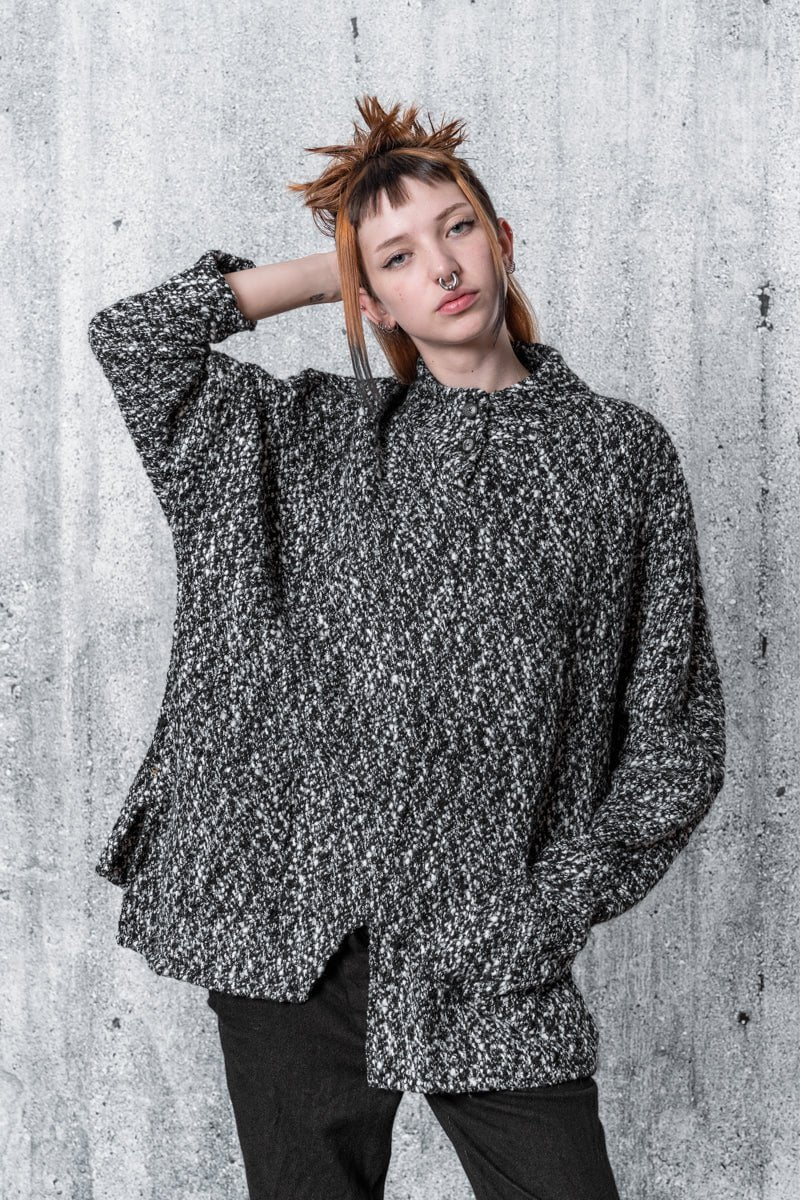
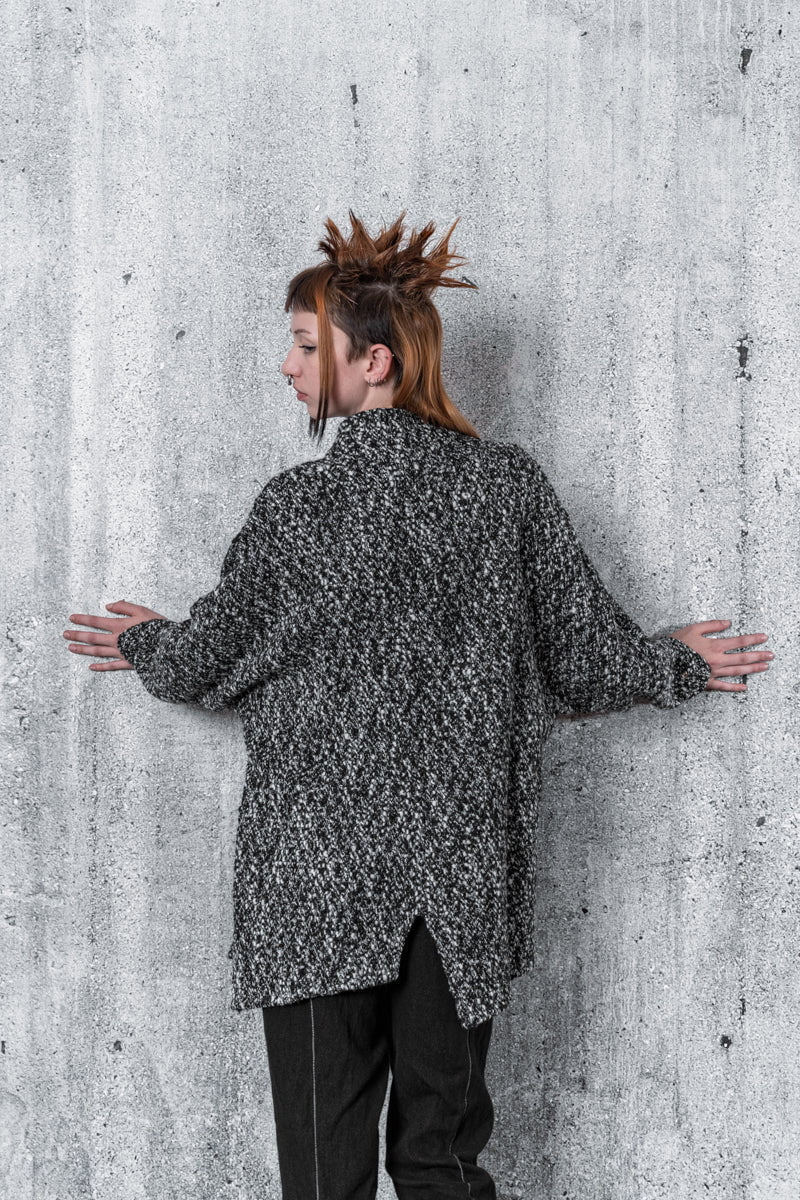
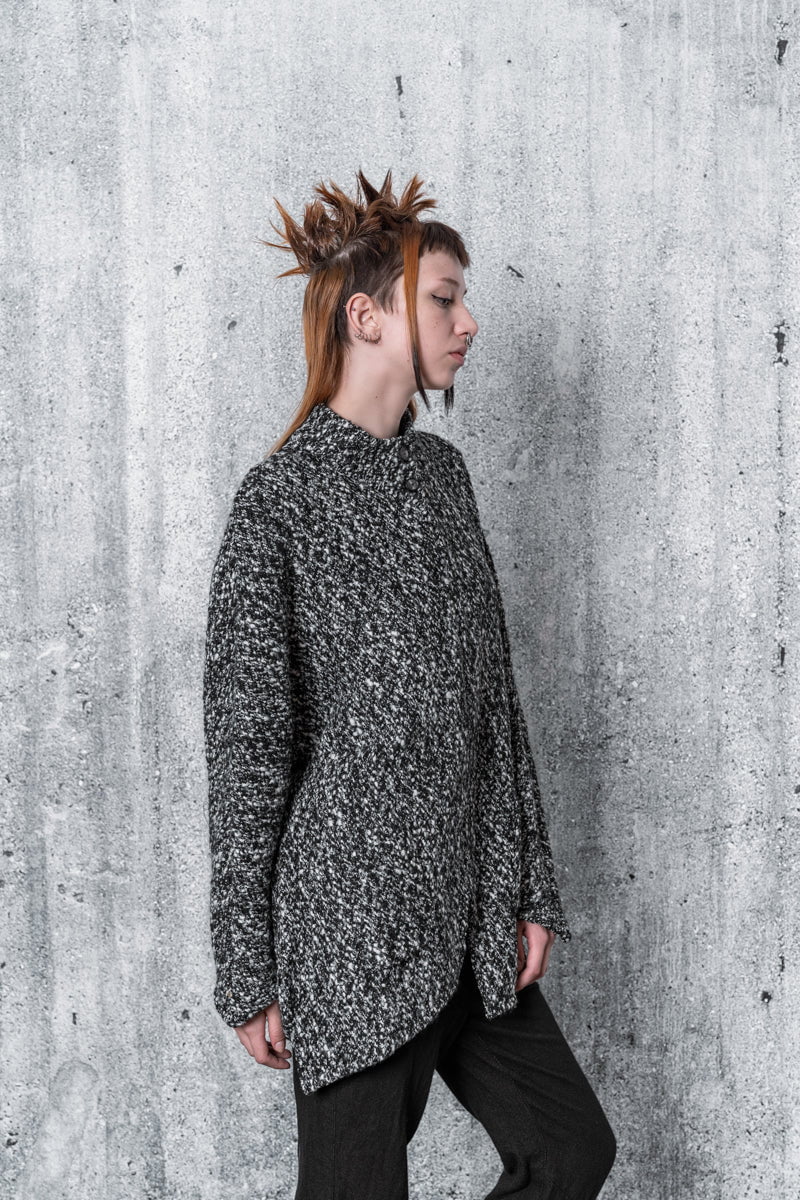
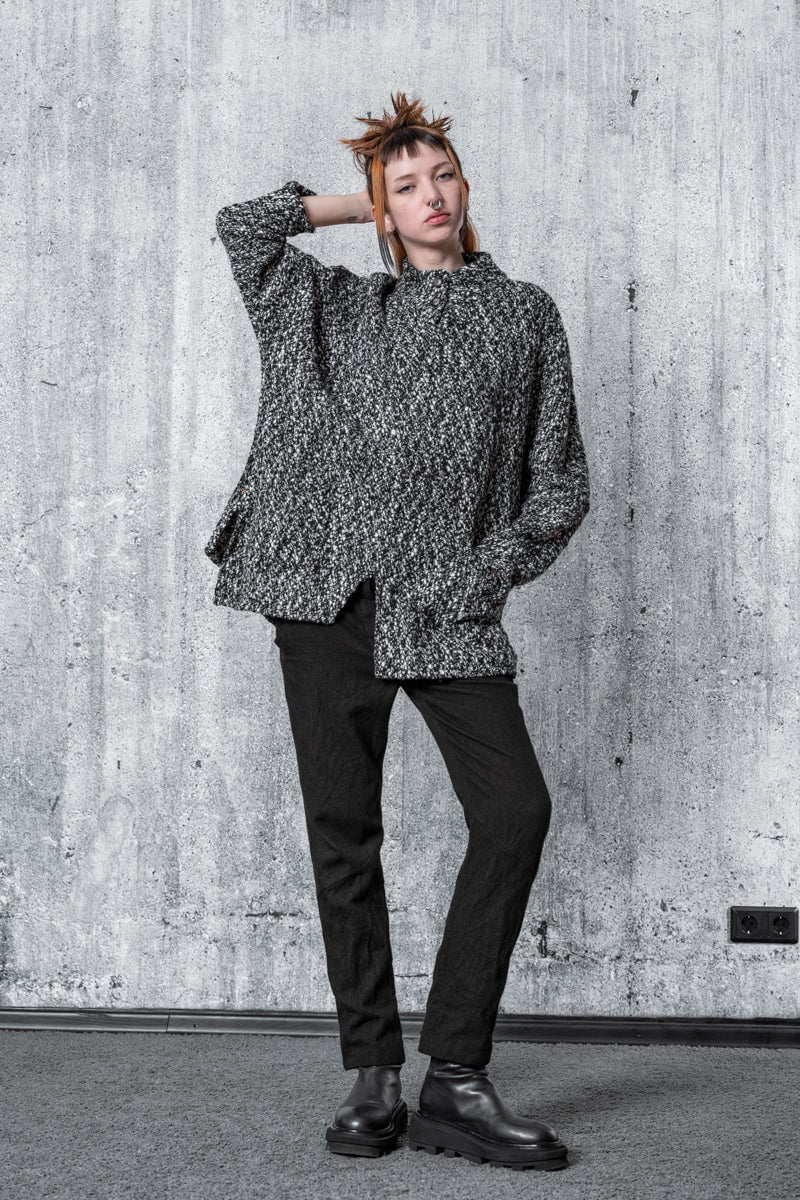
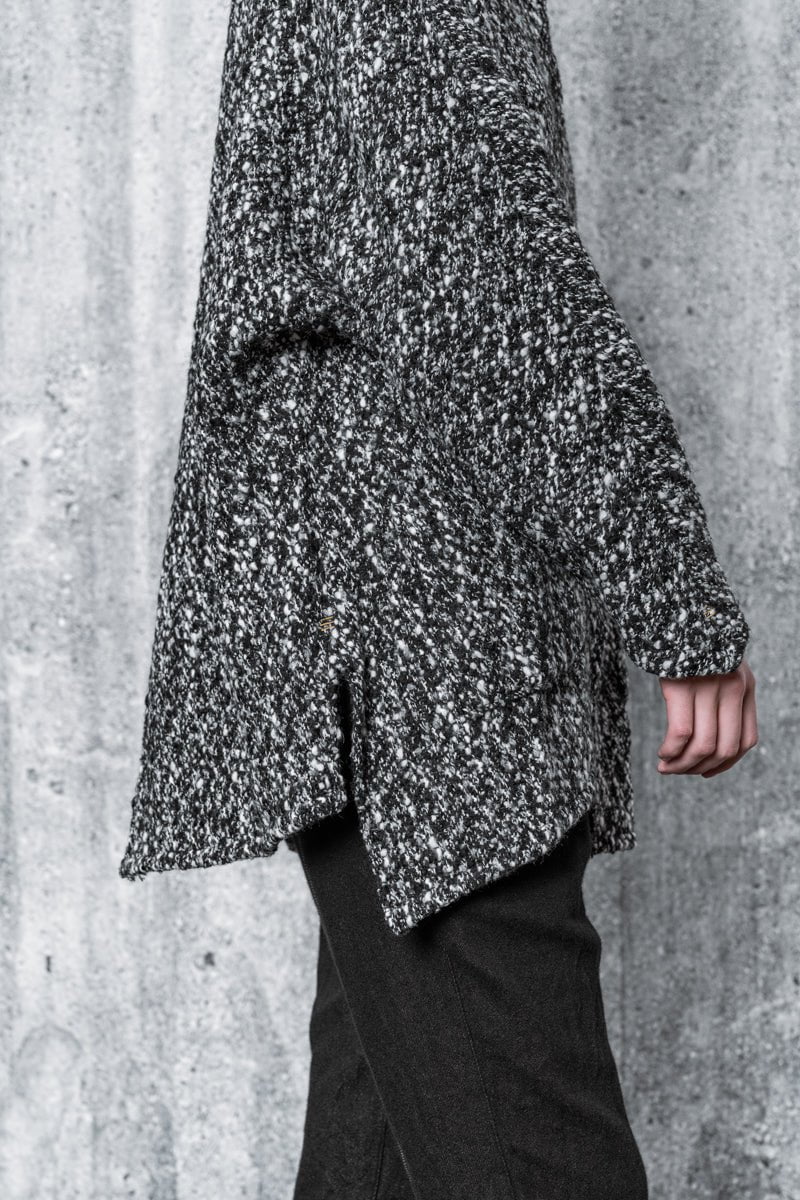
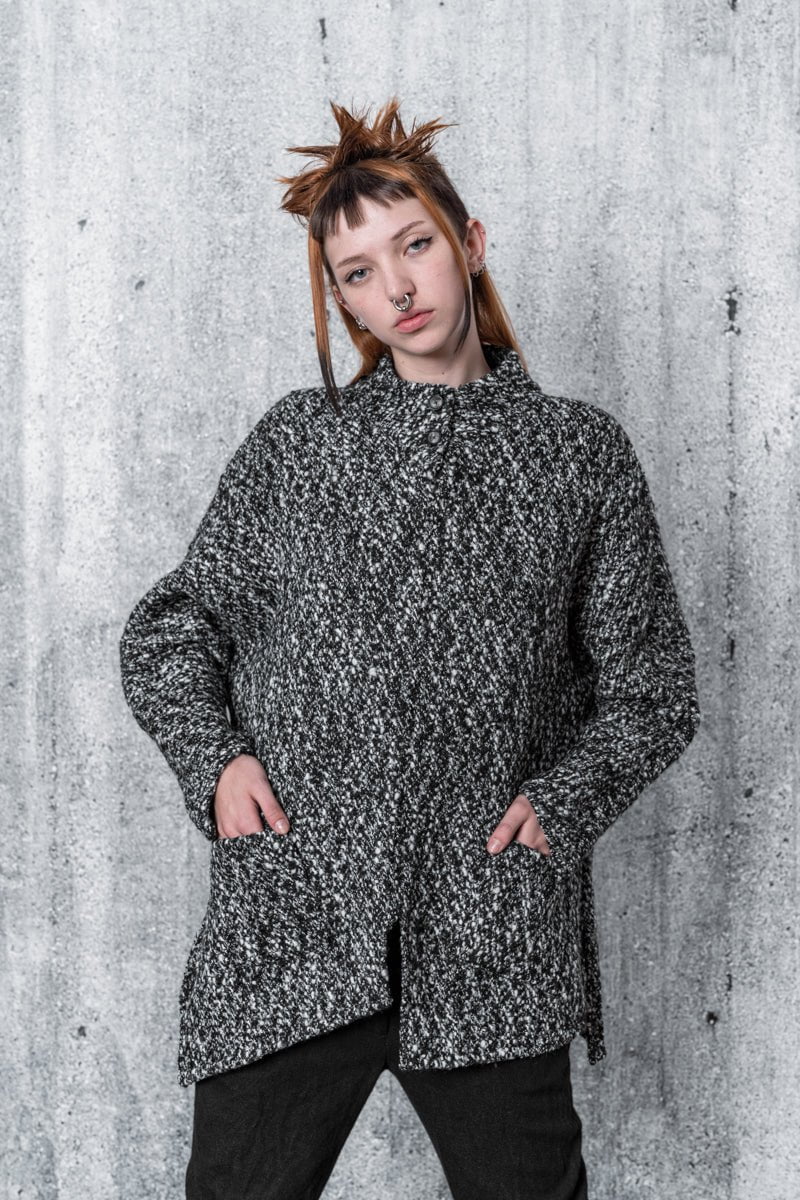
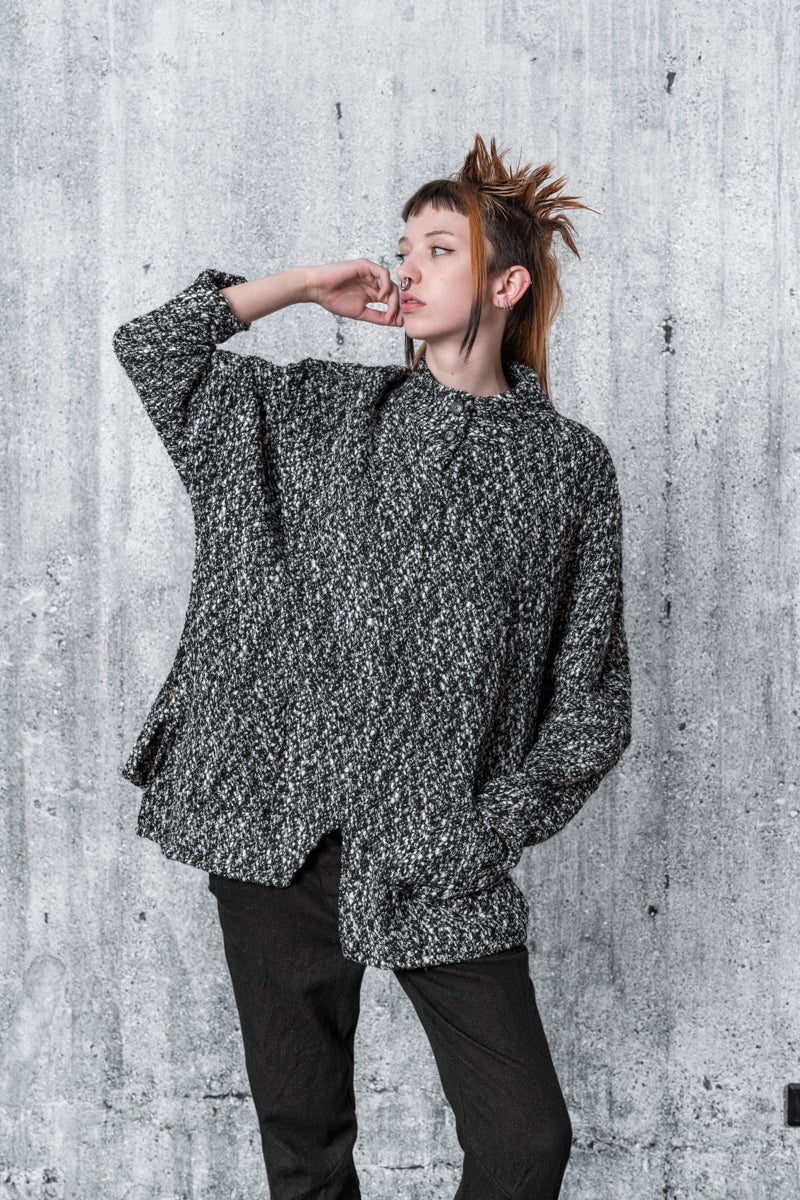
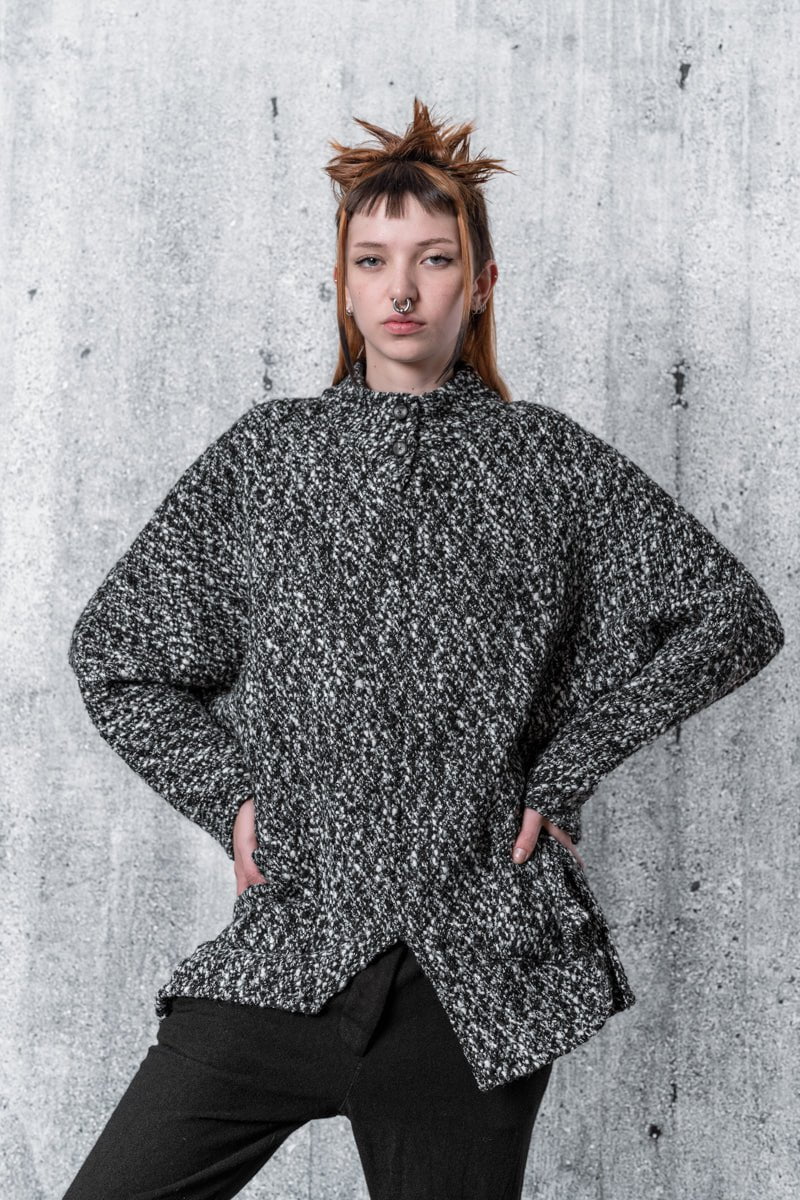
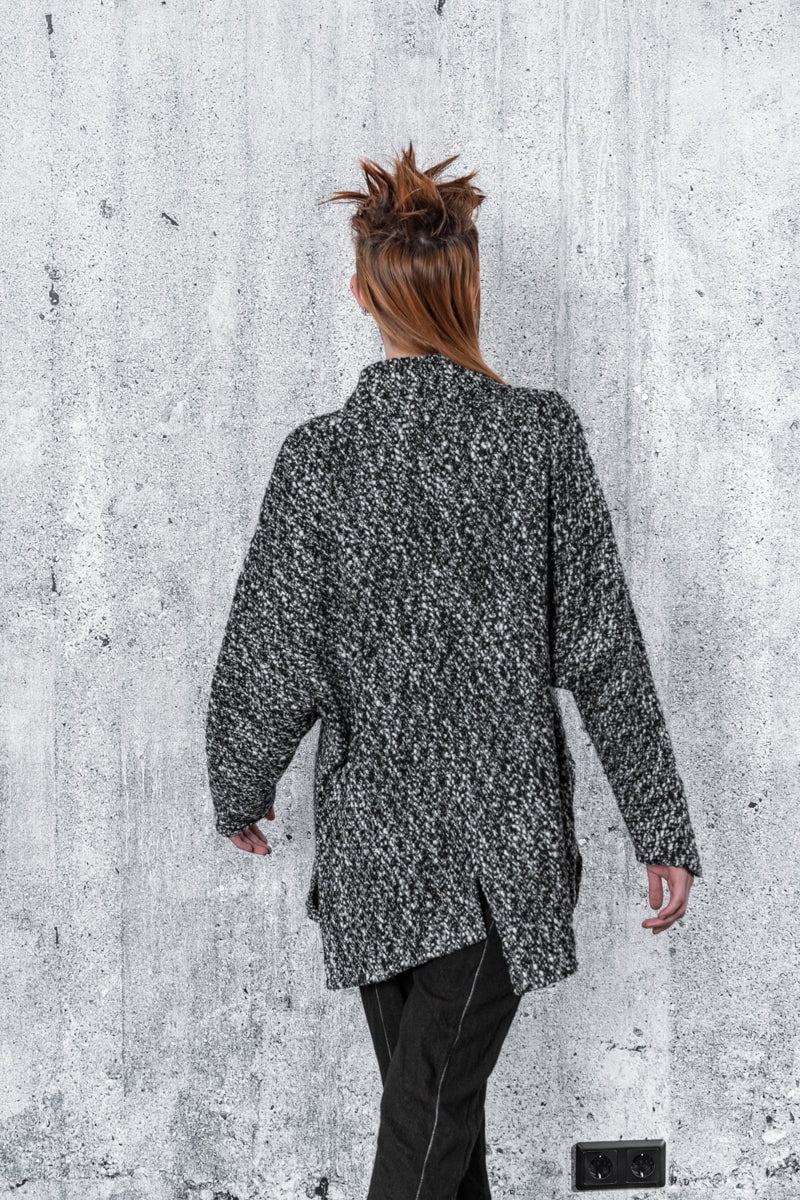
Our designer shop in Vienna
Opening hours:
Tuesday - Friday: 1 PM - 7 PM
Saturday: 11 AM - 6 PM
Sankt-Ulrichs-Platz 4
1070 Vienna - Austria
View on map
Our tailor shop in Vienna
In our in-house tailor shop in Vienna, we create and manufacture unconventional clothing. From tailor-made shirts to exclusive dresses and extraordinary tailor-made suits for your wedding.
About eigensinnig wien
Fashion label for high-end designer clothing and avant-garde fashion since 2012 for urban individualists. Our focus is on dark clothing and all black outfits in extraordinary styles. Sustainably manufactured in the EU from high-quality natural fabrics.
What is eigensinnig wien?
Who are the minds behind the fashion label eigensinnig wien?
Can you visit eigensinnig wien on your own for shopping?
Where do the materials come from and where is it produced?
Who can wear eigensinnig wien?
What sizes are eigensinnig wien clothes available in?
Service and assistance
Contact us and real people with real qualifications will answer your questions.
Tuesday - Friday: 1 PM - 7 PM
Saturday: 11 AM - 6 PM
Related products
Being eigensinnig - perfectly combined
We recommend the following products for your unique look.
















